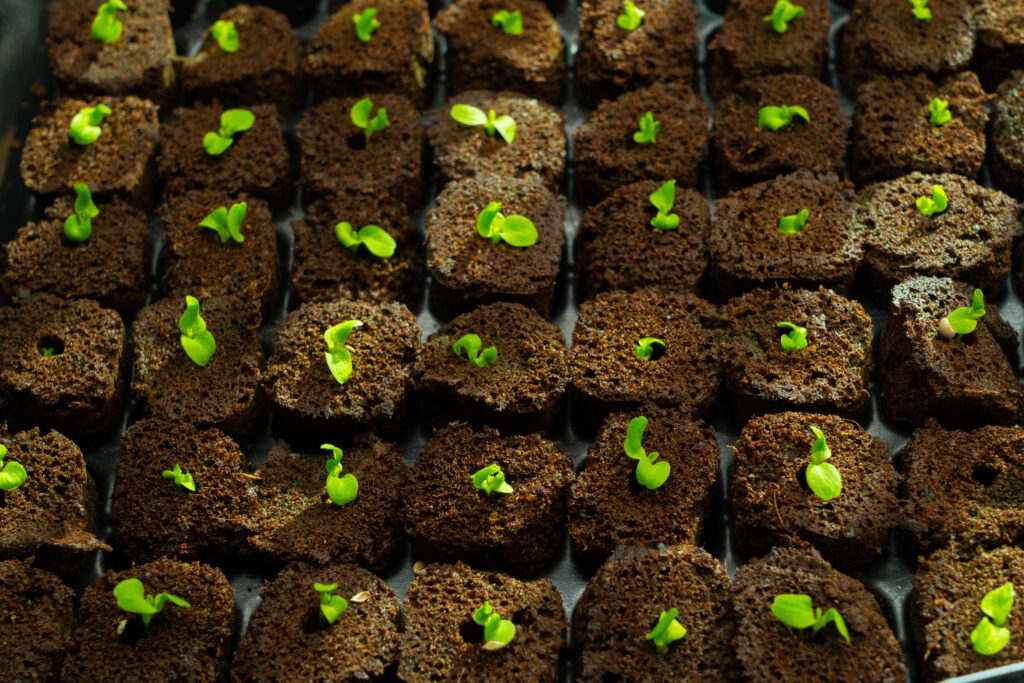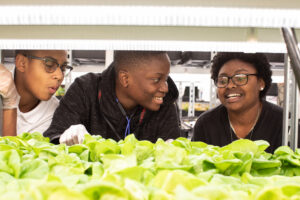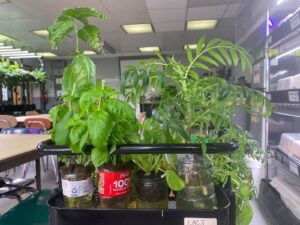By Michelle Cao | Published Apr 22, 2022 in the New York Daily News
Long lines of familiar faces continue to gather around food pantries across New York City. Folks nervously tap their toes on cemented floors and sidewalks, awaiting their turn. Brows furrow on some faces, others helplessly laugh, but all consider the question: Will I be able to feed my family tonight?
While the pandemic has amplified pre-existing and new challenges alike, going hungry alongside massive food waste is not a new American reality. According to a 2019 USDA report, more than 35 million Americans experienced hunger that year while food waste took up 20% of our landfills.
With large-scale food systems, problems like hunger and food waste can easily be seen as isolated issues with no solutions. However, as a young leader in the food justice circle with a student-led coalition organized by Teens For Food Justice, a non-profit that provides sustainably grown produce across New York City and beyond, I see the interconnectedness of the food supply chain with climate, racial and economic justice.
:quality(70)/cloudfront-us-east-1.images.arcpublishing.com/tronc/J6PKQO5UXRFFZCXEJFZAJJVZYI.jpg)
In New York City specifically, households add up to 436 pounds of food waste to landfills each year. This wasted food in our U.S. landfills alone “generates the equivalent of 32.6 million cars’ worth of greenhouse gas emissions.” Greenhouse emissions are continually — and harmfully — warming the Earth. According to the EPA: “From 1990 to 2019, the total warming effect from greenhouse gasses added by humans to the Earth’s atmosphere increased by 45%. The warming effect associated with carbon dioxide alone increased by 36%.”
This massive food waste metric also coexists alongside the disproportionately high rates of food insecurity experienced by Black, Indigenous and Hispanic households when compared to white households in the U.S. The impact of this is that underprivileged communities are overburdened with the physical and mental health consequences of inconsistent access to the resources needed to get the foods they need to live and thrive.
Composting and its benefits are not as widely known or accessible as they should be, nor is knowledge of new technologies like anaerobic digesters and their benefits on the environment and economy. Digesters are large machines that convert waste products into biogas, a source of renewable energy used to power stoves and heaters. The use of digesters can prevent organic matter from reaching landfills and in turn significantly lower greenhouse gas emissions. Although previous NYC administrations launched composting bin projects as early as 2014, their efforts have fallen short. In 2019, NYC only redirected 1.4% of organic waste away from landfills.
Teens for Food Justice is a group comprised of young people from New York City who understand food and environmental inequality first-hand and feel strongly about centering equity in the city’s food system planning — especially in the budget process. The new administration should be held accountable for the boldest and most forward-thinking recommendations outlined by Eric Adams in The New Agrarian Economy Report he issued as Brooklyn’s borough president.
The current administration’s failure to restore funding for NYC’s composting program to pre-pandemic levels as well as its failure to invest in a comprehensive composting program is disappointing. The City Council needs to prioritize funding for the city’s composting program during budget reconciliation.
A comprehensive composting program for all NYC residents is a big undertaking — but it is vital to the future of the city. Current research shows that the city’s sanitation budget will need to increase by a minimum of $177 million dollars annually to sustain effective organic waste management programs. The city cannot go backward on the fight against climate change, food waste and food insecurity. Restoring the Sanitation Department’s composting budget will improve the lives of those in communities most impacted by the gaps in the food system.
By investing in food, agricultural and composting hubs in each neighborhood, New York City will not only introduce new and needed jobs for youth and adults alike but also cultivate safe community spaces where people can drop off compost, access fresh and nutritious foods, and learn from one another. This will alleviate pressures on food pantries and create more sustainable change in the city’s food system.
New York City’s young people are demanding bold food policies that will provide the resources to uplift all communities to a place of equal opportunity — and ensure that a zip code is no longer a determinant of one’s life expectancy.
Find the original article here in the New York Daily News.






